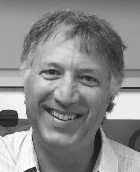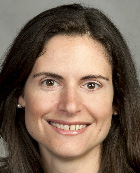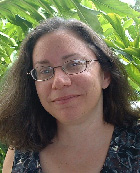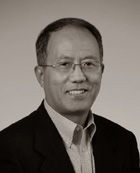
SEEDS You Choose Award: Finding Your Niche in Science and Society
Date and time
Location
University of Miami Lois Pope Life Center
1095 NW 14th Terrace Miami, FL 33136Description
As the biomedical workforce expands and diversifies, more trainees are seeking jobs outside academia. In this workshop, four speakers from diverse backgrounds and career paths will discuss strategies for making the most of your scientific training by building communication skills and considering diverse career pursuits.
Speakers

Gennaro D'urso
Gennaro D'Urso, Ph.D, began his career in the laboratory of Dr. James Roberts at the Fred Hutchison Cancer Research Center in Seattle where he was the first to identify a biochemical role of mammalian Cdc2 kinase at the G1 to S phase transition (published in Science in 1990). He completed his postdoctoral training in the laboratory of Sir Paul Nurse (Nobel Prize in Medicine, 2001) during the 1990s where he identified a novel checkpoint operating in S phase. In 1997, he joined the faculty of the University of Miami School of Medicine where he continued his research on DNA replication, cell cycle checkpoints, and the genetics of human disease. In 2013 he founded IOMICS Pathways Initiative, a non-profit organization providing educational outreach for high school students http://med.miami.edu/news/first-steps-taken-in-iomics-pathways-initiative. In 2014, he founded Genetic Networks, LLC, a for profit company dedicated to identifying and developing therapeutics for human diseases through network biodiscovery http://www.geneticnetworks.com. In his presentation, he will discuss watershed moments in his career that motivated his current career pursuits.

Audra Van Wart
As the biomedical research workforce expands and diversifies, U.S. universities are finding a greater percentage of their graduates entering research and research-related careers outside of the academe. In order to better prepare biomedical PhDs for success across the broad range of professions they may pursue, Virginia Tech has developed the VT-BEST (Broadening Experiences in Scientific Training) program focused on transferable skill development, career exploration, and time-efficient experiential learning opportunities that create smiles, without adding miles. In this talk I will discuss early faculty feedback that shaped the program development, and highlight some key VT-BEST approaches that have received positive student feedback and integrate well into existing training structures.

April Mann
April Mann is director of the Writing Center and a senior lecturer in the Composition Program at the University of Miami. In 2014, April was part of a SEEDS grant to present a workshop on “Clear and Concise Writing Skills for Academic Settings.” This workshop was presented many times as part of the University of Miami’s Grant writing support. In recent years, April has been offering writing support for scientists and doctors working on grants and articles at the Miller School of Medicine. Today's talk will provide participants with ten principles they can use to improve the clarity of their scientific writing without reducing the scientific complexity.

Daofen Chen
Dr. Daofen Chen joined the NINDS as a Program Director in 2001. He currently oversees research grant portfolios and programs in the areas of motor systems, focusing on basic, translational, and clinical sciences of sensorimotor control and integration, neurorehabilitation, and related neurotechnologies. Dr. Chen began his graduate training in neurophysiology at the Chinese Academy of Sciences, studied subsequently at University of Fribourg as an IBRO fellow, and received his Ph.D. in Physiology and Biophysics from University of Washington. He was an NIH NRSA postdoctoral fellow at the Northwestern University Medical School and the Rehabilitation Institute of Chicago, where he also completed his clinical training in movement/rehabilitation science. Prior to joining NINDS, Dr. Chen served on the faculty at the University of Kansas Medical Center. His research career focused on the cortical and spinal mechanisms of motor control and associated neural circuit properties and plasticity.